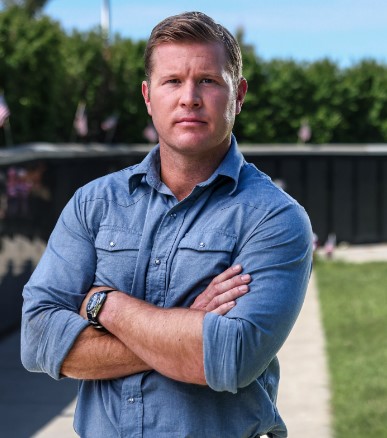In a significant and contentious moment in the Montana Senate race, a Republican candidate has made headlines for his remarks regarding young women and abortion. The candidate accused young women of being “indoctrinated” into viewing abortion as their only political issue. This statement, made during a campaign event, has sparked intense discussions about gender, politics, and reproductive rights in the state.
Accusations of Indoctrination
During a recent campaign stop in Superior, Montana, the Republican candidate, Tim Sheehy, expressed concerns about young women’s voting patterns, particularly regarding abortion. He claimed that women aged 19 to 30 prioritize abortion rights above all other political issues. Sheehy suggested that these women have been “indoctrinated” to believe that Republicans want to “take my rights away and lock me up and throw me in prison.”
He described a conversation he had with a group of younger individuals where abortion was a prominent topic. According to him, they were “single-issue voters” solely focused on the pro-choice stance. This description implies that he believes young women are not considering other important issues when they vote. Sheehy emphasized the need for Republicans to engage with younger voters, suggesting that if they could explain their views on abortion, it might change these voters’ perceptions.
Sheehy’s comments suggest a broader trend in politics where candidates sometimes generalize the views of younger voters. By labeling them as “indoctrinated,” Sheehy may dismiss their concerns. He avoids engaging with them in a meaningful way. This approach can be problematic. It overlooks the diversity of opinions within younger generations. It also reduces complex issues to simplistic narratives.
Mischaracterizations and Controversies
In his speech, Sheehy repeated a claim that many Republicans have used in recent years. He stated that Democrats support “murder,” equating it with their stance on abortion. He falsely claimed that Democratic policies include federally funded abortions up to the moment of birth. These characterizations have been heavily debated and criticized for misrepresenting the actual positions of many in the Democratic Party.
The candidate also suggested that once young people hear the “truth” about Democrats’ positions on abortion, they will change their minds. He argued that when he explains these views to young voters, a “light bulb” goes off, indicating a newfound understanding. This narrative often oversimplifies a complex issue, failing to acknowledge that people’s beliefs about abortion are deeply personal and shaped by many factors, including individual experiences and values.
Moreover, Sheehy’s comments extended beyond the issue of abortion. He made disparaging remarks about Montana’s indigenous Crow people, which included stereotypes that painted a negative picture. These statements added another layer of controversy to his campaign and raised concerns about his views on different communities in Montana.
Montana Campaign Response and Political Implications
In response to the backlash from his remarks, a spokesperson for the Sheehy campaign clarified that he is “pro-life” but does make exceptions for cases of rape, incest, and when the life of the mother is at risk. However, the spokesperson did not directly address the incendiary comments captured in the recordings. Instead, they focused on criticizing the current Democratic incumbent and the state of various issues, including inflation and border security.
The dynamics of this Senate race are crucial, as it has the potential to influence the balance of power in the U.S. Senate. Tim Sheehy is running against a Democratic incumbent, and Montana is considered a key battleground state. The outcomes of races like this one can determine which party controls the Senate, making the stakes particularly high for both candidates.
The Impact of Polarizing Language on Voters
Sheehy’s comments reflect a broader trend in political discourse, where candidates often use polarizing language to galvanize their base. However, such remarks can also alienate potential voters who may feel that their views and experiences are being dismissed. This dynamic is especially important in a state like Montana, where diverse perspectives exist among the electorate.
As the race continues, discussions about reproductive rights, gender, and community relations are likely to remain at the forefront. Voter reactions to these remarks could shape the strategies that both candidates use as they engage with different demographic groups in Montana.
The controversy surrounding the Republican candidate’s comments underscores the complexities of contemporary political discourse. With significant issues like abortion and representation of diverse communities at stake, voters in Montana will be watching closely as the campaign unfolds.




